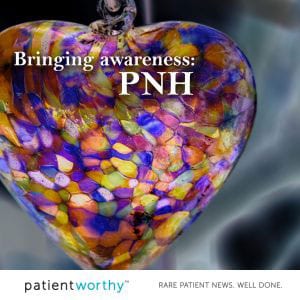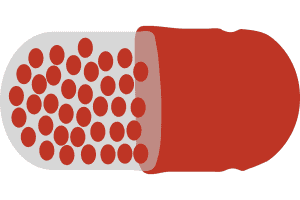Recently, biopharmaceutical company Apellis Pharmaceuticals announced submission of a New Drug Application (NDA) and Marketing Authorization Application (MAA) for pegcetacoplan. If approved, these applications will allow for patients with paroxysmal nocturnal hemoglobinuria (PNH) in the U.S. and E.U. to be treated with this therapy.
Pegcetacoplan
Generally, a New Drug Application and Marketing Authorization Application request approval to market a new drug. The NDA is central to the United States, while the MAA is used in Europe. These documents are supported by data from clinical trials. For pegcetacoplan, researchers submitted data from the Phase 3 PEGASUS trial. In the trial, pegcetacoplan reduced fatigue and improved hemoglobin levels. Currently, Apellis hopes to receive approval on pegcetacoplan by the end of 2020.
Pegcetacoplan is an experimental C3 inhibitor. Complement component 3, or C3, is a protein that plays a role in the complement system. Usually, C3 activates the immune system and helps destroy foreign invaders. But in conditions like PNH, the complement system is over-activated. By inhibiting C3, pegcetacoplan stops the immune system from attacking and destroying stem cells. Pegcetacoplan received Orphan Drug designation from the FDA. According to the FDA, this status is granted:
to drugs and biologics which are defined as those intended for the safe and effective treatment, diagnosis or prevention of rare diseases/disorders that affect fewer than 200,000 people in the U.S., or that affect more than 200,000 persons but are not expected to recover the costs of developing and marketing a treatment drug.
Paroxysmal Nocturnal Hemoglobinuria (PNH)
Caused by spontaneous PIGA gene mutations, paroxysmal nocturnal hemoglobinuria (PNH) is a rare hematopoietic stem cell disorder. It causes damage to red and white blood cells, as well as platelets. In most cases, diagnosis occurs between ages 35 and 40. The condition affects men and women equally. Generally, survival rate is around 10 years following diagnosis. PNH also represents an increased risk of developing leukemia. Symptoms include:
- Fatigue
- Dark or bloody urine
- Persistent chest pain
- Headache
- Shortness of breath
- Blood clots
- Impaired bone marrow function
- Abdominal cramps
- Difficulty swallowing
- High heart rate
- Poor kidney function
Learn more about PNH here.







